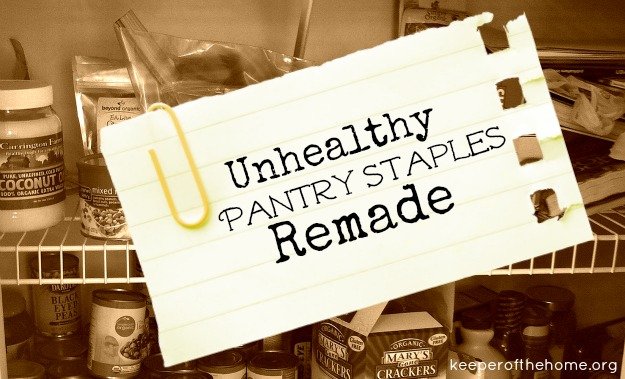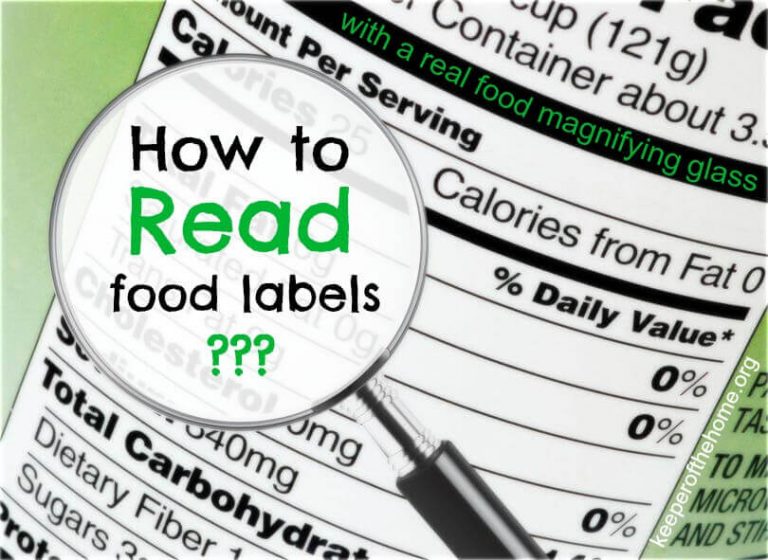To clarify some things
I received a comment this week that addressed an important issue related to something I wrote about in my first Raising Healthy Eaters post. After talking to a friend about it today, I realized that it might serve my readers to read both the comment and my answer, to bring some clarification to something that I talked about:
While
I agree in theory with some of what you have written, I need to speak
up for the parents of children with health issues such as ADHD, autism
and the like. It is an oversimplification to state that so many of
those disorders are caused by diet–either that of the pregnant mother
or the child. For example, researchers now believe that childhood-onset
diabetes is caused by a virus. I just hate to see more guilt heaped
onto a mother who is doing the best she can to raise this precious
burden that God has given to her.Thanks
for your comment, Pieces. I apologize if my post came across as saying
that I believe it is the parents fault, or that nutrition (or lack of
it) is the cause of these childhood disorders. Although I believe that
it very likely contributes (and in some cases may be the cause), I do
not believe it is the only cause, nor do I believe that it is
necessarily a cause in every case.I believe that there are many different reasons children get
disorders- diet, other environmental factors (both in and out of our
control), vaccinations, viruses (as you mentioned), genetics, etc. I
certainly do not intend to "heap guilt" onto mothers who are dealing
with such difficult circumstances.I have personally worked with many, many families that have children
with disabilities (esp. Autism, as well as Cerebral Palsy, and others)
and part of my passion to see parents informed about nutrition is that
I have seen firsthand the pain and difficulty these families and
children experience, and it breaks my heart. I know that it is not the
answer to all of their problems, nor do I wish to add guilt, but I do
wish to see them being benefited as much as possible by a proper diet.
To anyone who may have heard or felt judgment or condemnation from what I originally wrote, I sincerely apologize, and I hope that this more clearly communicates my true intentions and thoughts.



I enjoyed your post and agree with much of what you said. The Standard American Diet is definitely a major cause in the rise of sickness and disease in both children and adults. I don’t think you were being harsh or blameful. I work with expecting and new mothers on a daily basis and know that they would not do anything to intentionally harm their children.
The problem is that most of them are not aware of the harmful toxins and pollutants that are in our food and our surrounding environment. And that is all you were trying to do… make people aware of the dangers, so they can be informed and take better care of their families.
I think you are doing a great job. Thank you for providing this wonderful website to the world.
Well, a good offense is crucial, so keeping ourselves as healthy as possible can mitigate the effects of illnesses not related to diet.
Child onset diabetes (Type 1) and diet related diabetes (Type 2) are COMPLETELY different. Type 1 diabetes is an immune disorder. Type 2 is a metabolic disorder. Type 1, the cells that produce insulin die. Type 2, the cells throughout the body become desensitized and unable to use insulin. Type 2 is preventable; type 1 they are still working on it.
My daughter is part of a study into Type 1 diabetes – she had some genetic markers at birth and they are doing a 15 year study to find out why some kids get Type 1 and some don’t. They are looking at everything – I have to send in stool samples monthly (to look for viruses), they test our water periodically (for contaminants, additives), keep food records including ages new foods were introduced, send in toenail and hair clippings (environmental toxins)… hopefully we’ll have some answers someday!
Thank you, Alexander!
Milehimama, thanks for sharing about the types of diabetes (I understand it a little bit, but not nearly as well as you). Sounds like you have had to become an expert on it. I’m sorry to hear about your daughter. The study you are a part of sounds very, very thorough- I hope that it will bring more answers, and I am eager to hear them myself!
I enjoy reading your blog every once in a while when I see it linked somewhere. Thanks…